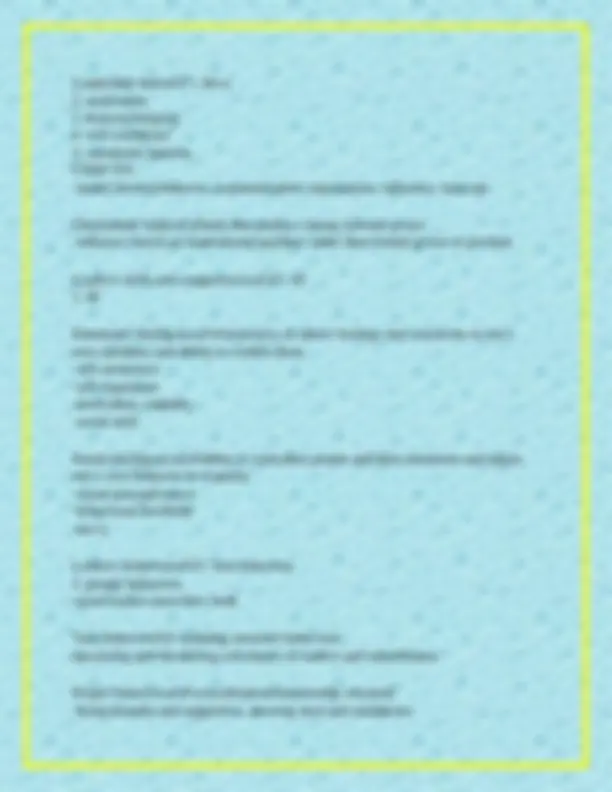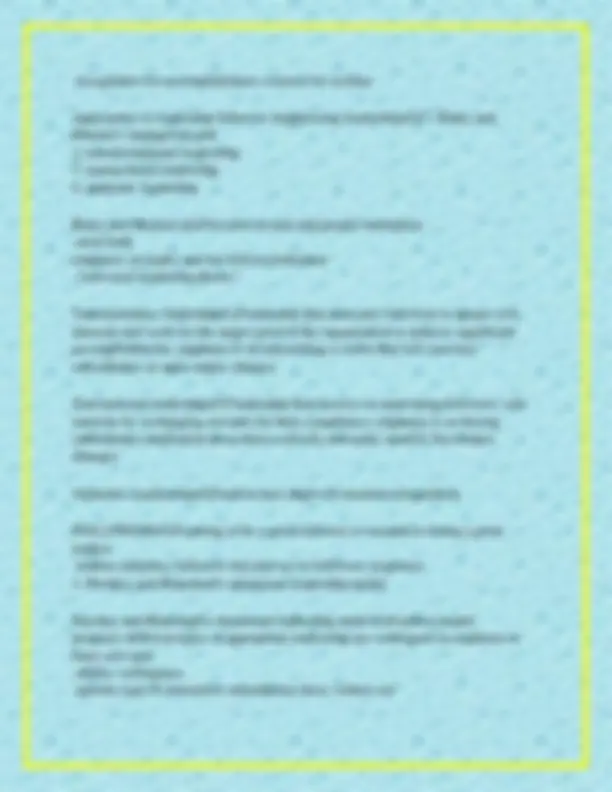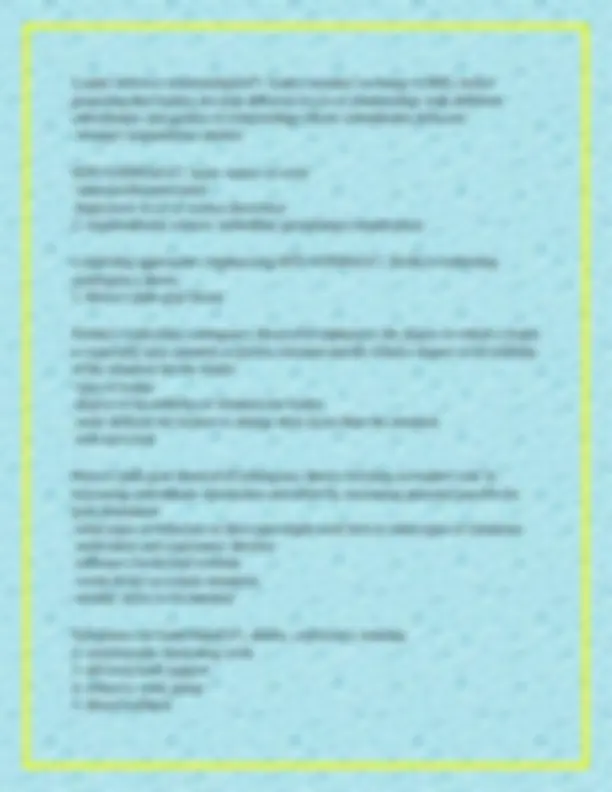





Study with the several resources on Docsity

Earn points by helping other students or get them with a premium plan


Prepare for your exams
Study with the several resources on Docsity

Earn points to download
Earn points by helping other students or get them with a premium plan
Community
Ask the community for help and clear up your study doubts
Discover the best universities in your country according to Docsity users
Free resources
Download our free guides on studying techniques, anxiety management strategies, and thesis advice from Docsity tutors
Chapter 7 Leadership Exam 2024/2025
Typology: Exams
1 / 6

This page cannot be seen from the preview
Don't miss anything!




Organizational leadership✔✔interpersonal process that involves attempts to influence other people in attaining group goals -anyone can exhibit
Effective leadership✔✔influence that assists a group or organization to perform successful and meet its goals and objectives
Leadership vs. Management✔✔Leadership: involves creating vision for organizations/units, setting, communication and promoting new direction goals/procedures/inspiring subordinates Managerial: dealing with interpersonal conflicts, planning, organizing, implementing goals set by others -leadership is a component of management, but management is more than just leadership
Power✔✔capacity/ability to influence -more power=more potential for influence -change course of events, overcome resistance, motivate people -possession and use
Position power✔✔based on person's rank and position in an organization A) Legitimate B) Reward C) Coercive
Legitimate power/formal authority✔✔position power granted to person by the organization
Reward power✔✔position power based on person's authority to distribute awards -bonuses/rewards
Coercive power✔✔position power based on person's authority to administer punishments either by withholding something or giving out something undesired
Personal Power✔✔based on individual's characteristics A) Expert B) Referent
Expert power✔✔personal power; specialized knowledge not readily available -not confined to organizational levels
Referent power✔✔personal power; when people are attracted to/identify with another person -cost free asset -unclear how this power is attained and developed -respect
How much power to use?✔✔too little=inactivity too much= resistance, resentment
Which types of power to use?✔✔situation -what happened before? what change is needed circumstance -referent and expertise are low cost
How can power be put to use?✔✔influence tactic: specific behavior to affect the behavior/attitudes of others -rational appraising, inspirational appeal, consultation, personal appeal, pressure
Should power be shared?✔✔empowerment: sharing of power with others -facilitate commitment, learning, innovation
Locus of leadership✔✔1. leader
-recognition for accomplishment, concern for welfare
Approaches to leadership behavior emphasizing leadership✔✔1. Blake and Mouton's managerial grid
Blake and Mouton's✔✔focused on task and people orientation -need both emphasis on leader and not follower/situation -"universal leadership theory"
Transformative leadership✔✔leadership that motivates followers to ignore self- interests and work for the larger good of the organization to achieve significant accomplishments; emphasis is on articulating a vision that will convince subordinates to make major changes
Transactional leadership✔✔leadership that focuses on motivating followers' self- interests by exchanging rewards for their compliance; emphasis is on having subordinates implement procedures correctly and make needed, but routine, changes
Authentic leaedership✔✔leaders have high self awareness/regulation
FOLLOWERS✔✔learning to be a good follower is essential to being a good leaders -leaders influence followers but also act to followers responses
Hershey and Blanchard's situational leadership model✔✔earliest model proposes different types of appropriate leadership are contingent on readiness to learn new task -ability, willingness -ignores type of interaction subordinates have, culture etc
Leader-follower relationship✔✔1. leader-member exchange (LMX): belief proposing that leaders develop different levels of relationships with different subordinates and quality of relationships affects subordinates behavior -stranger-acquantaince-partner
SITUATIONS✔✔1. tasks: nature of work -structured/unstructured -high.lower level of worker discretion
Leadership approaches emphasizing SITUATION✔✔1. Fielder's leadership contingency theory
Fielder's leadership contingency theory✔✔emphasizes the degree to which a leader is especially task-oriented or person-oriented and the relative degree of favorability of the situation for the leader. -type of leader -degree of favorability of situation for leader -more difficult for leaders to change their styles than the situation -non-universal
House's path-goal theory✔✔contingency theory focusing on leader's role in increasing subordinate satisfaction and effort by increasing personal payoffs for goal attainment -what types of behavior on their part might work best in what types of situations -motivation and expectancy theories -influence for desired rewards -works better in certain situations -modify styles to fit situation
Substitutes for leadership✔✔1. ability, experience, training